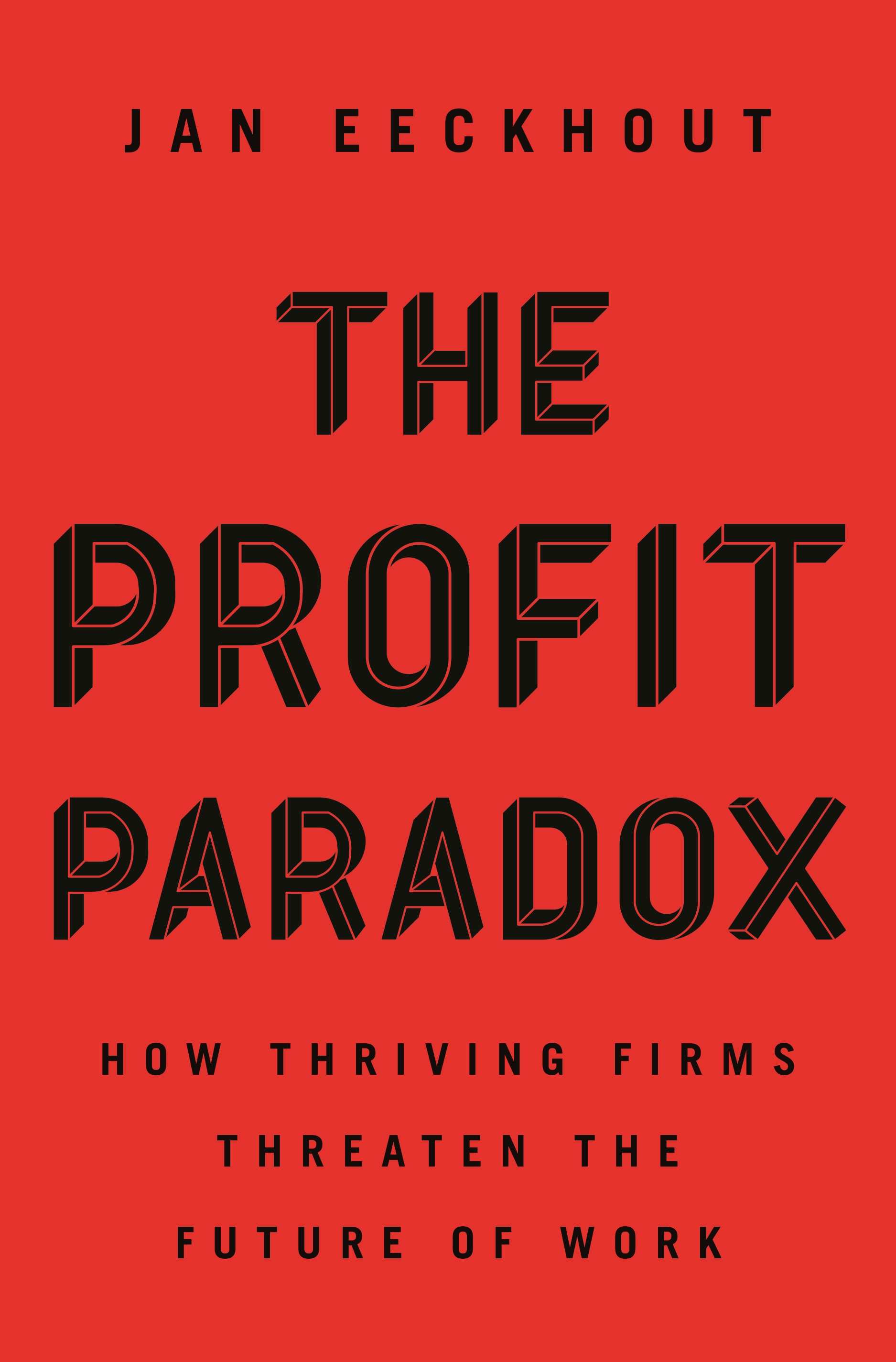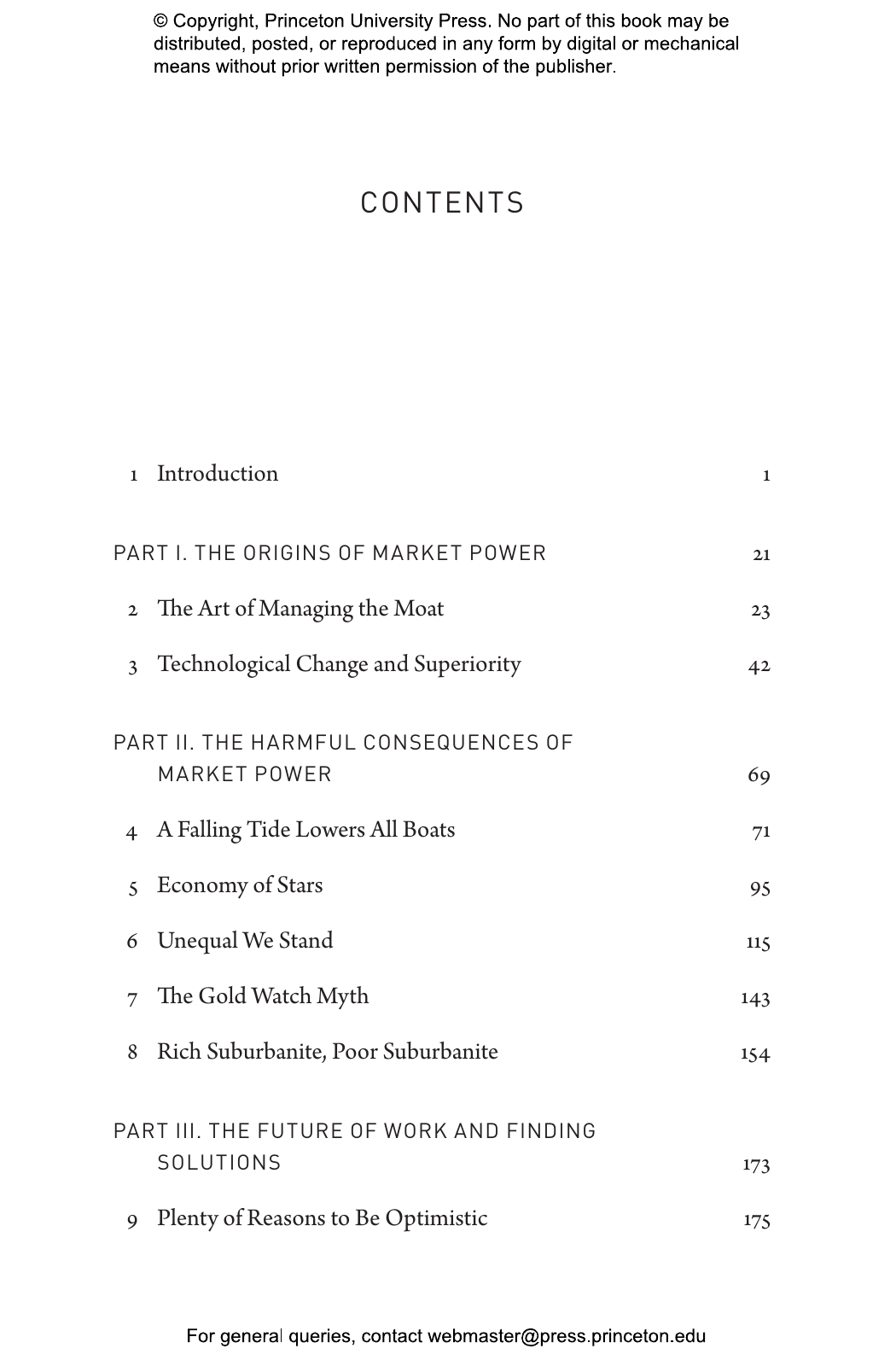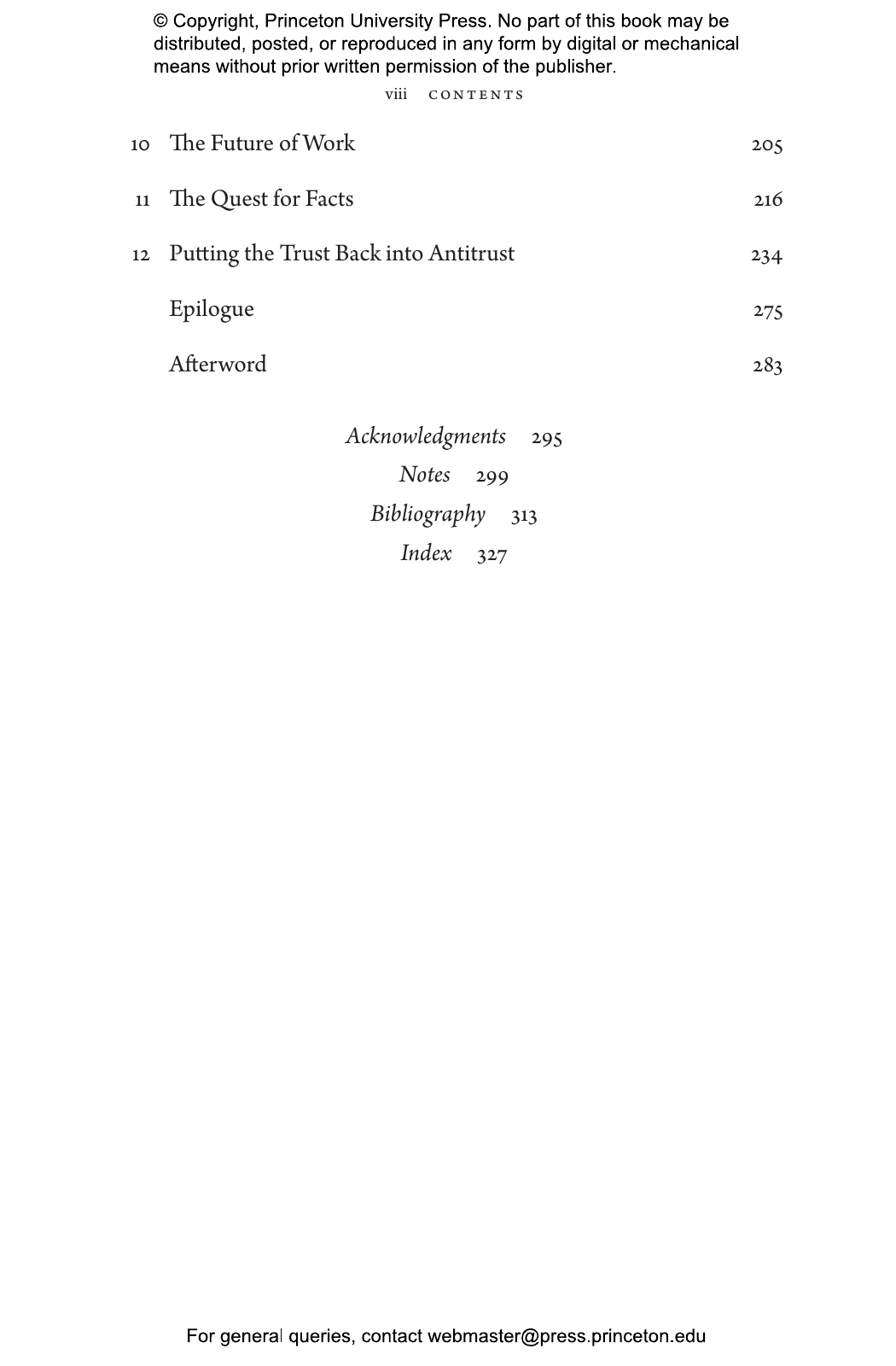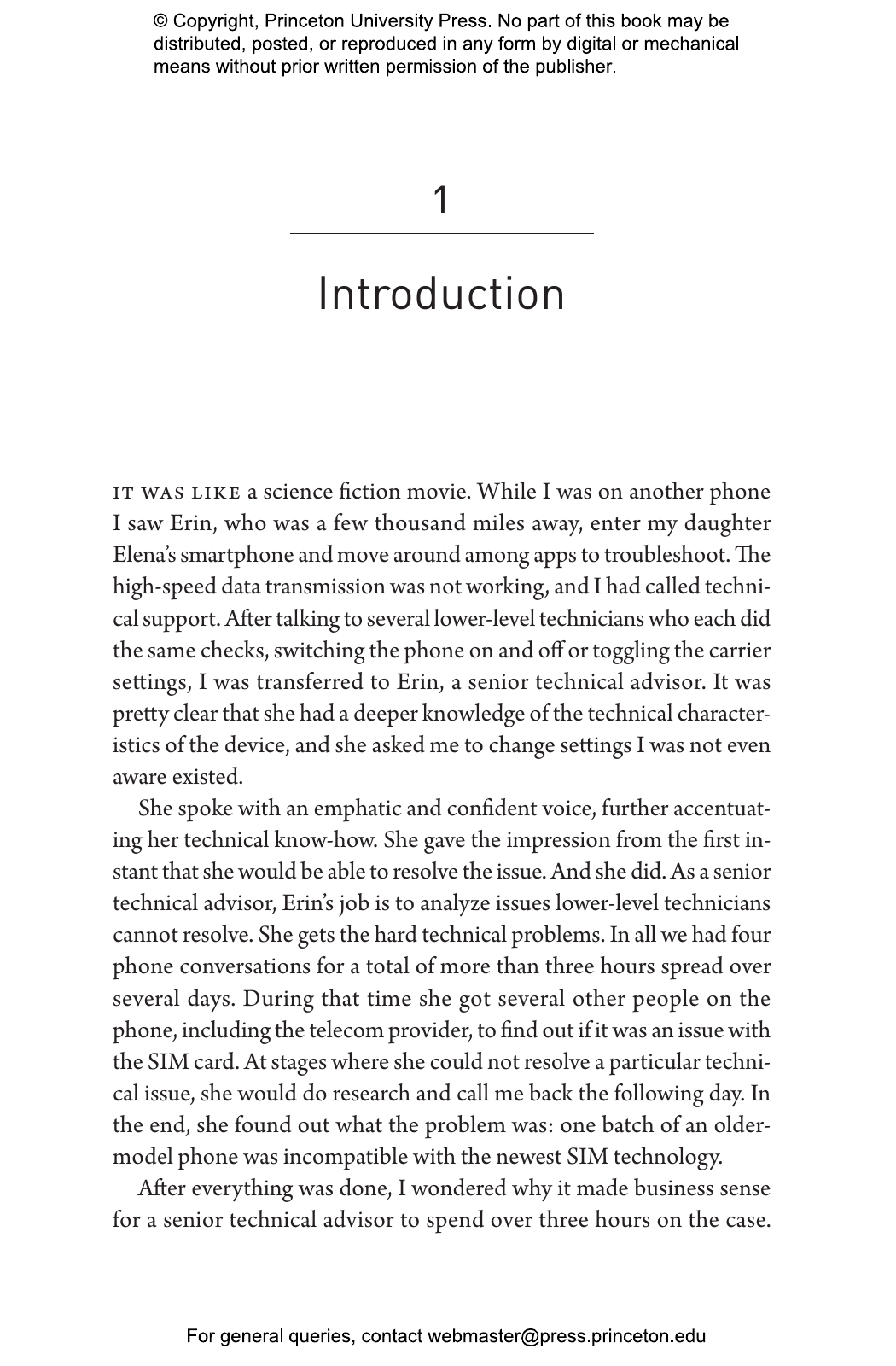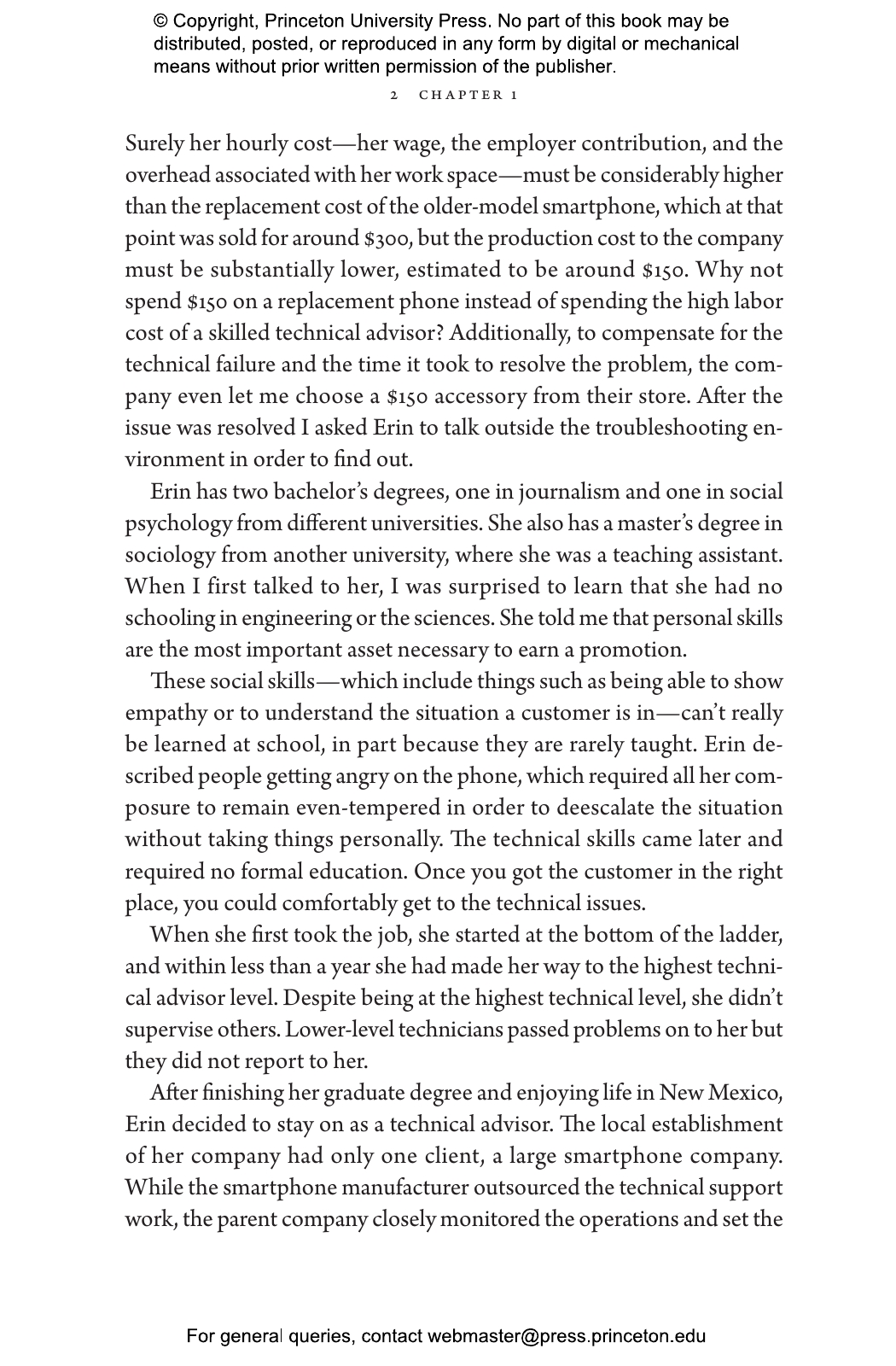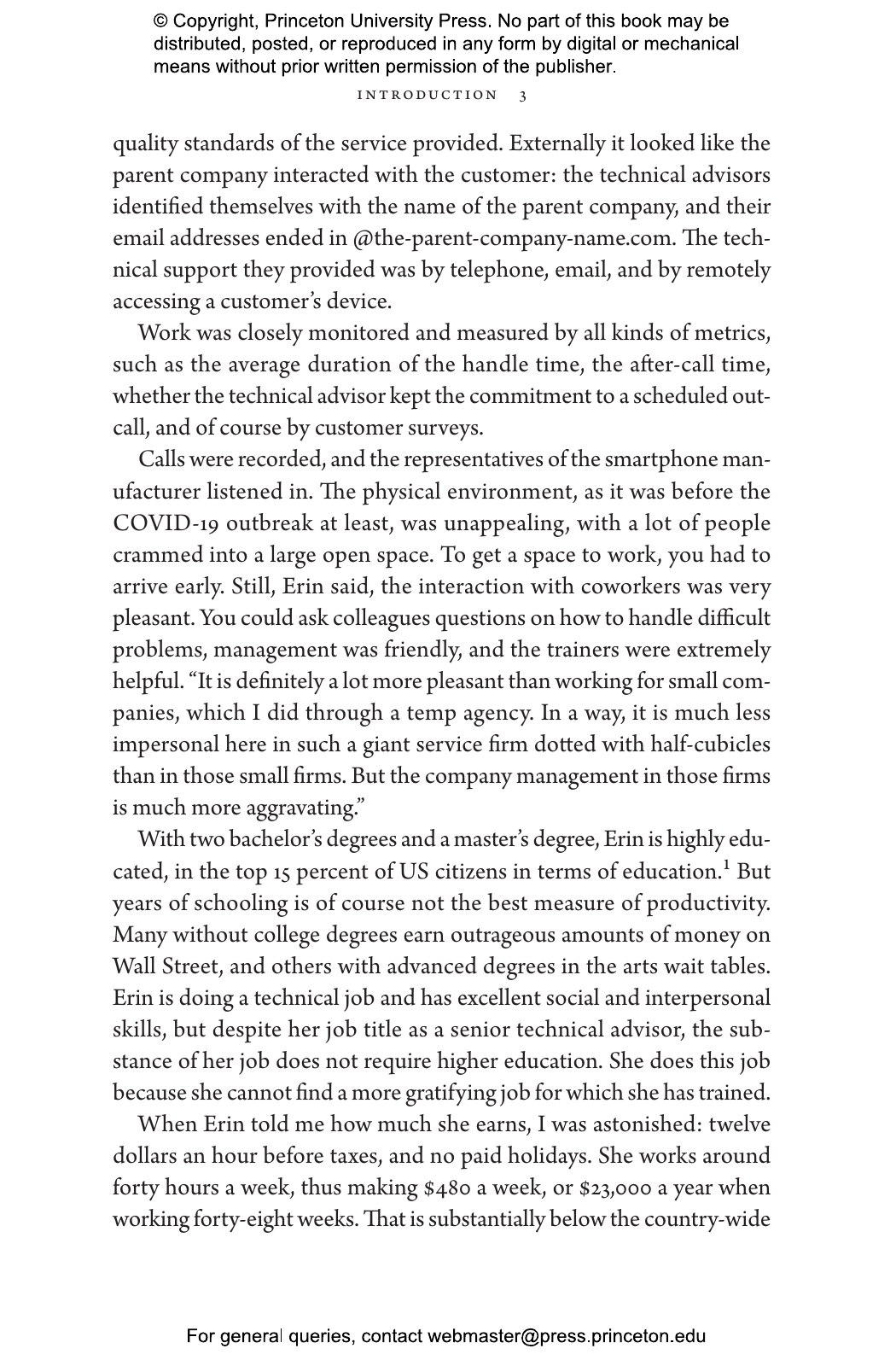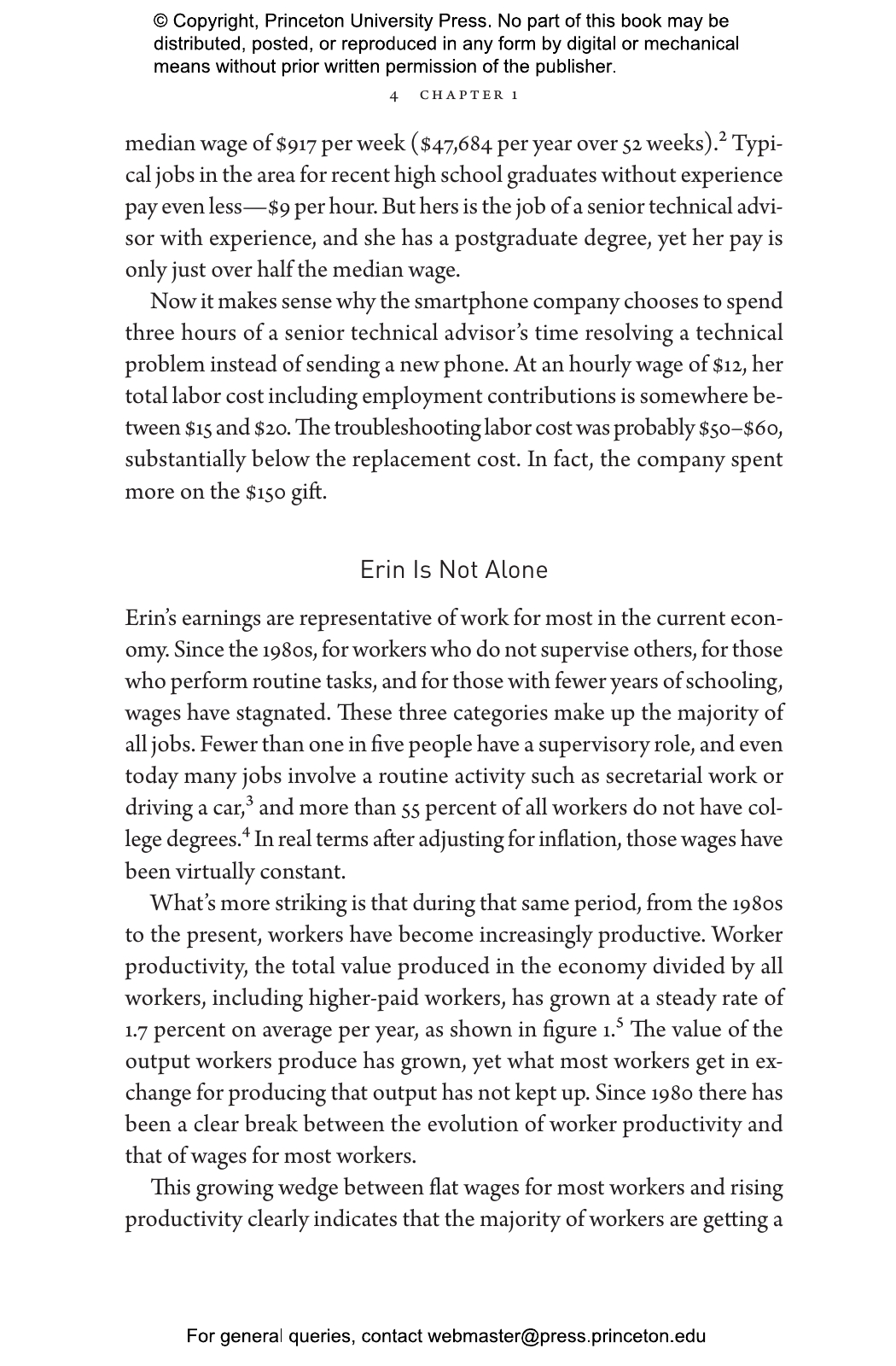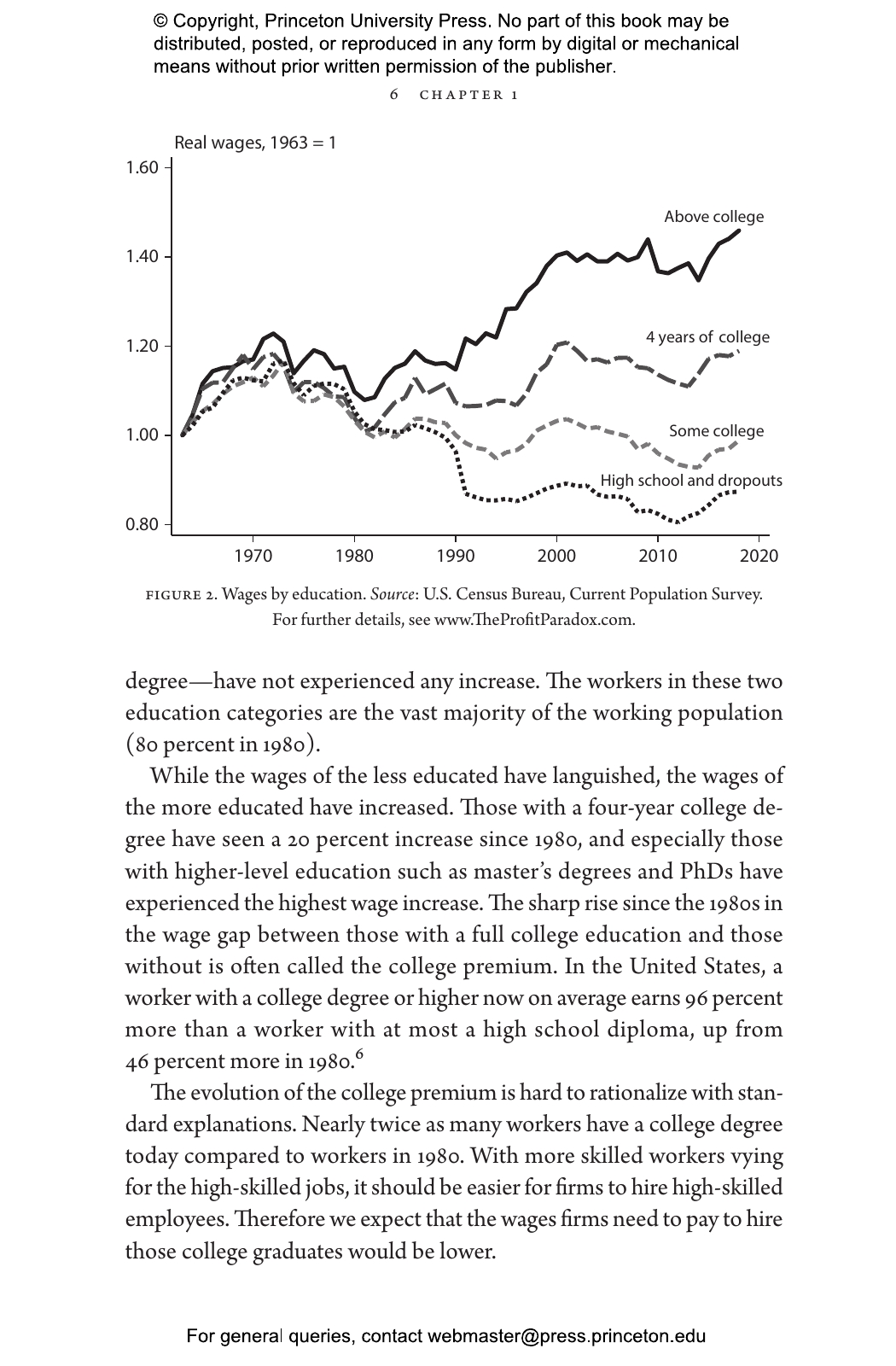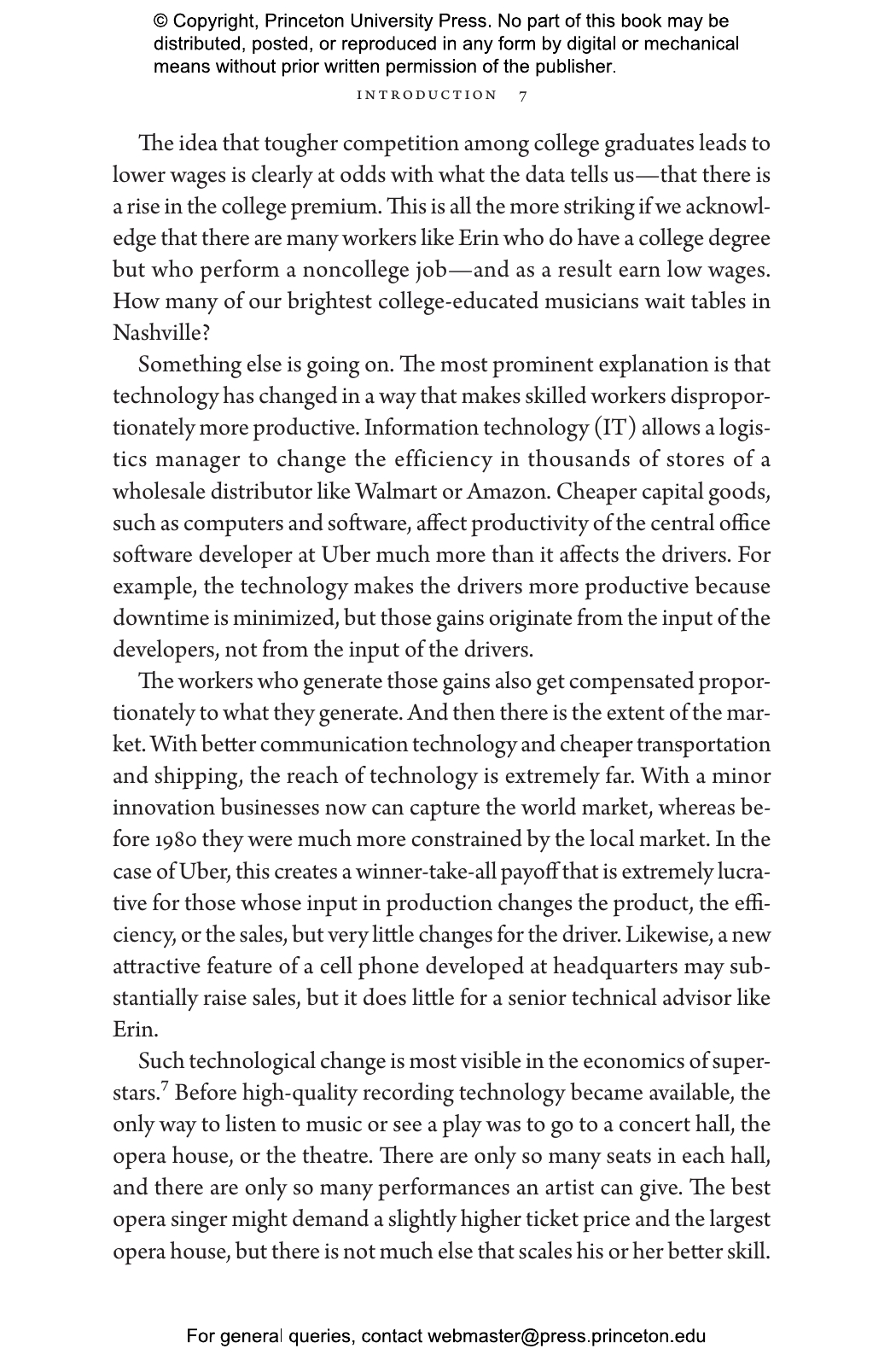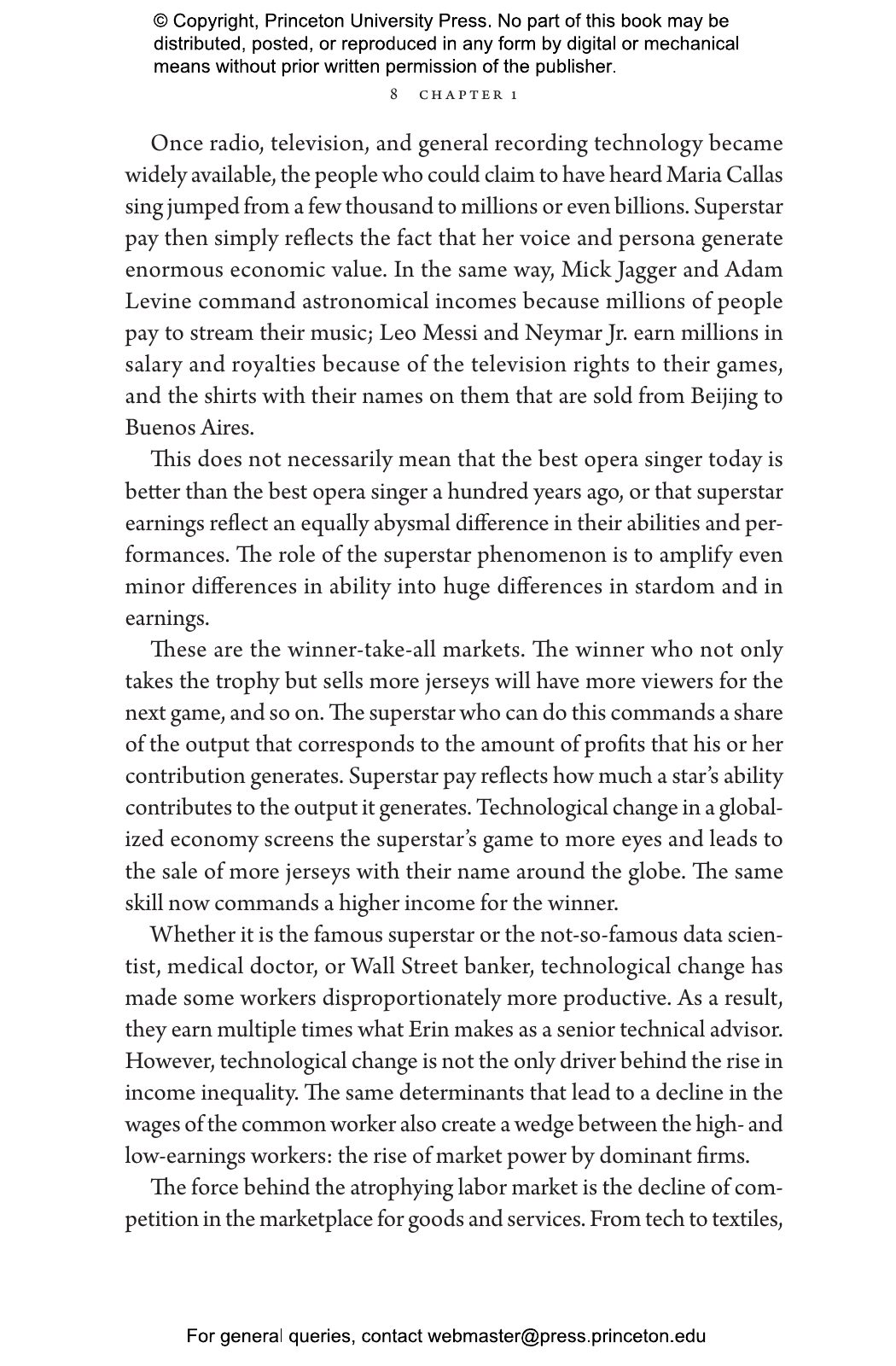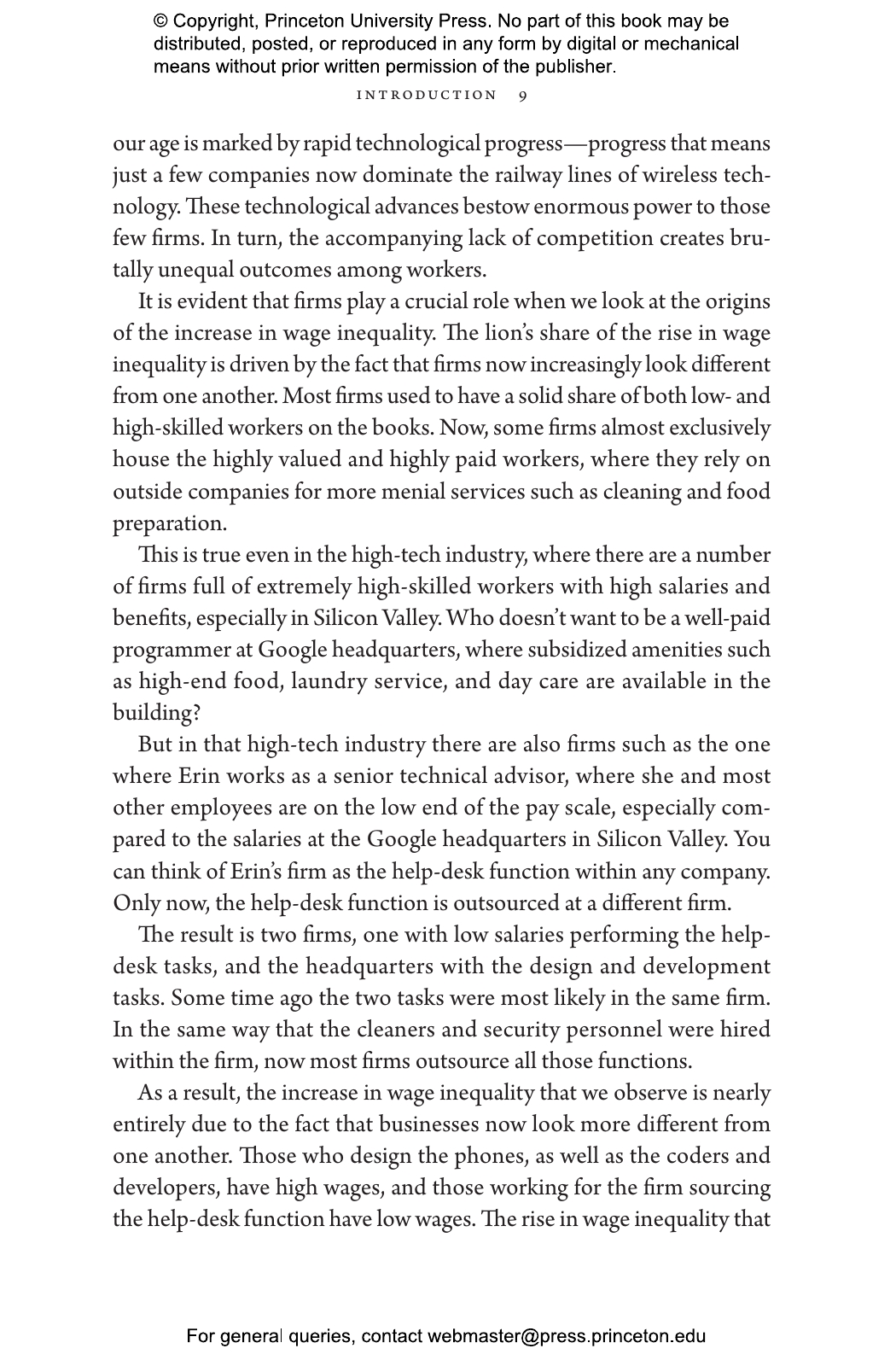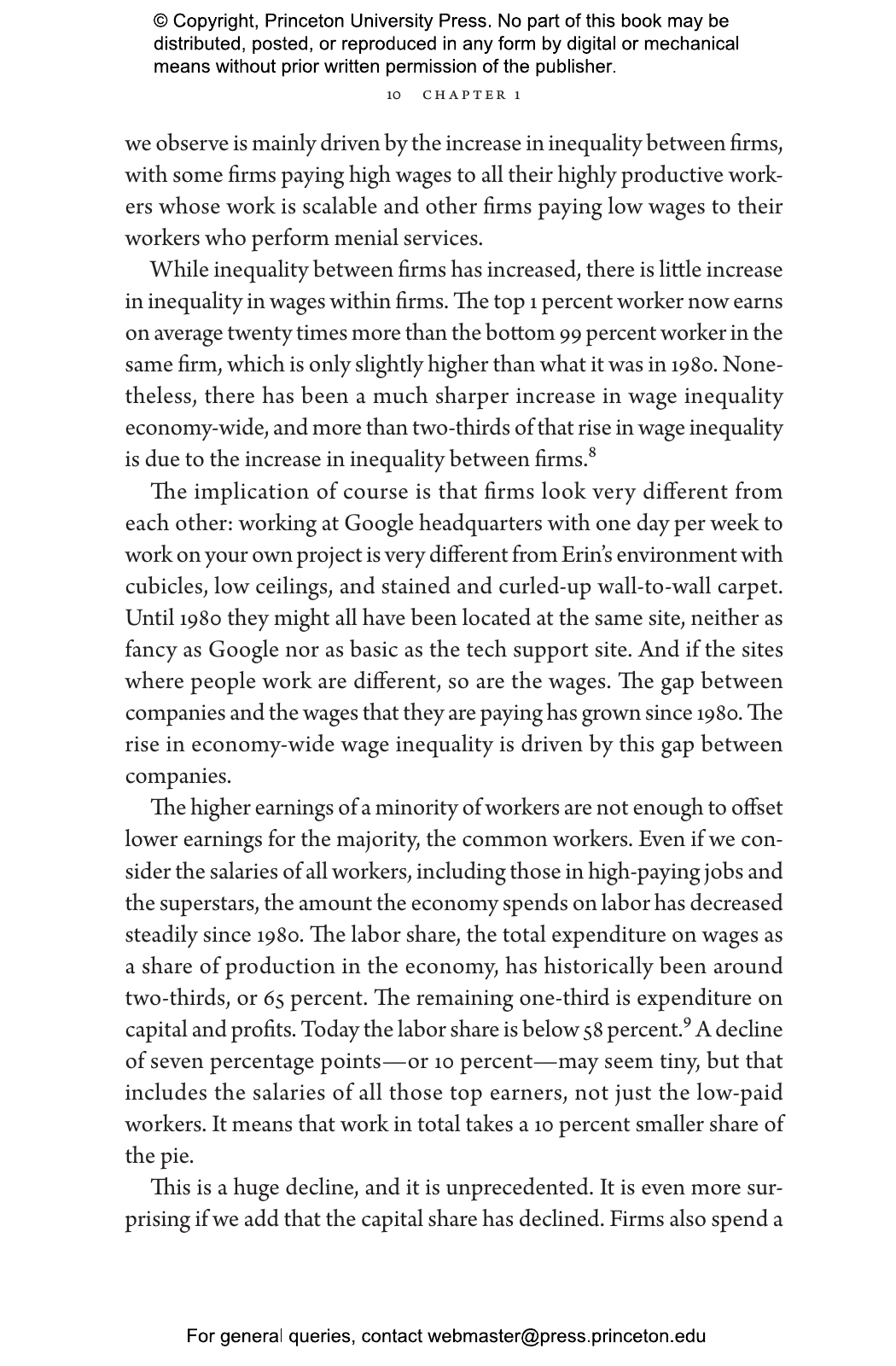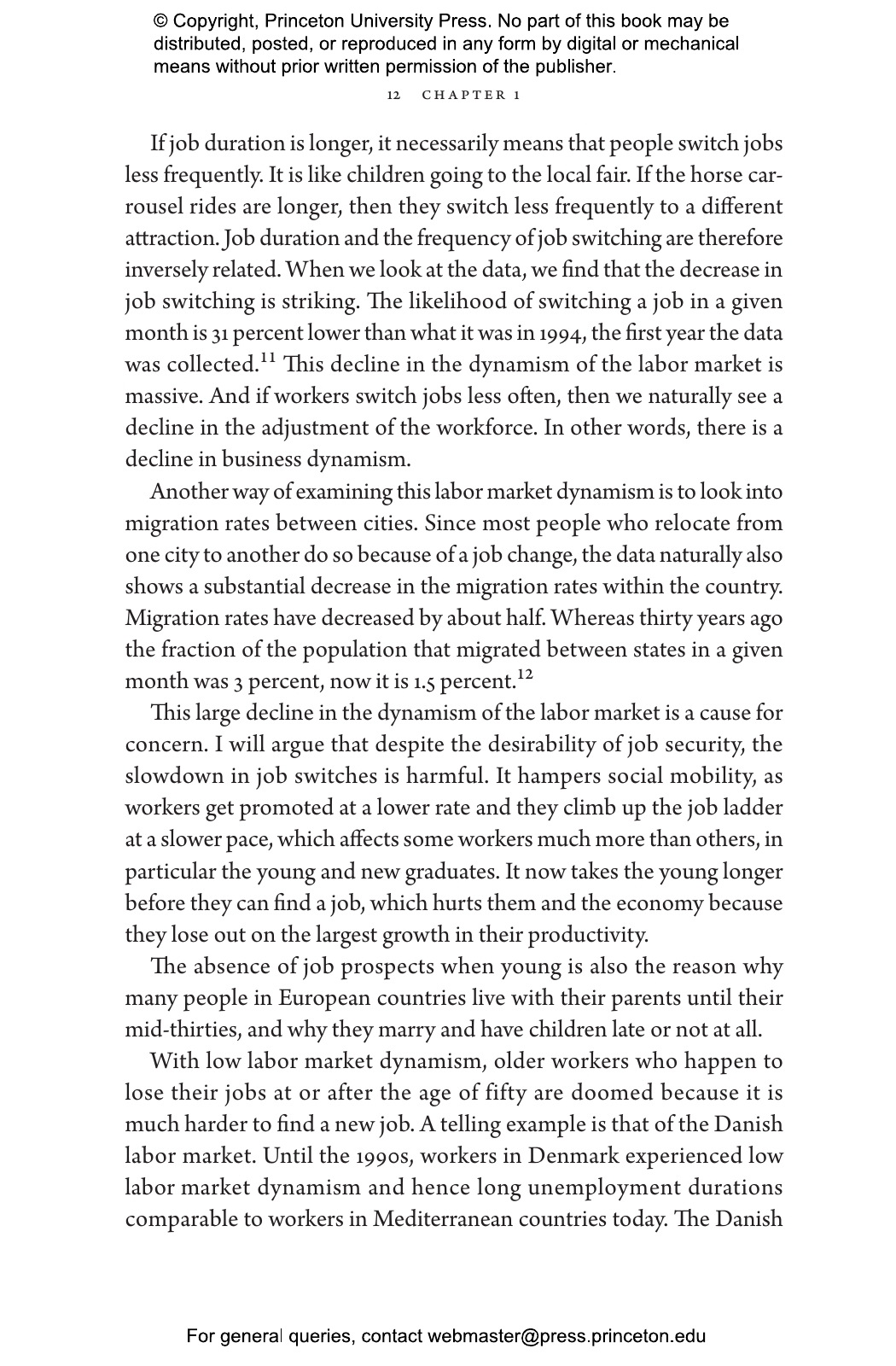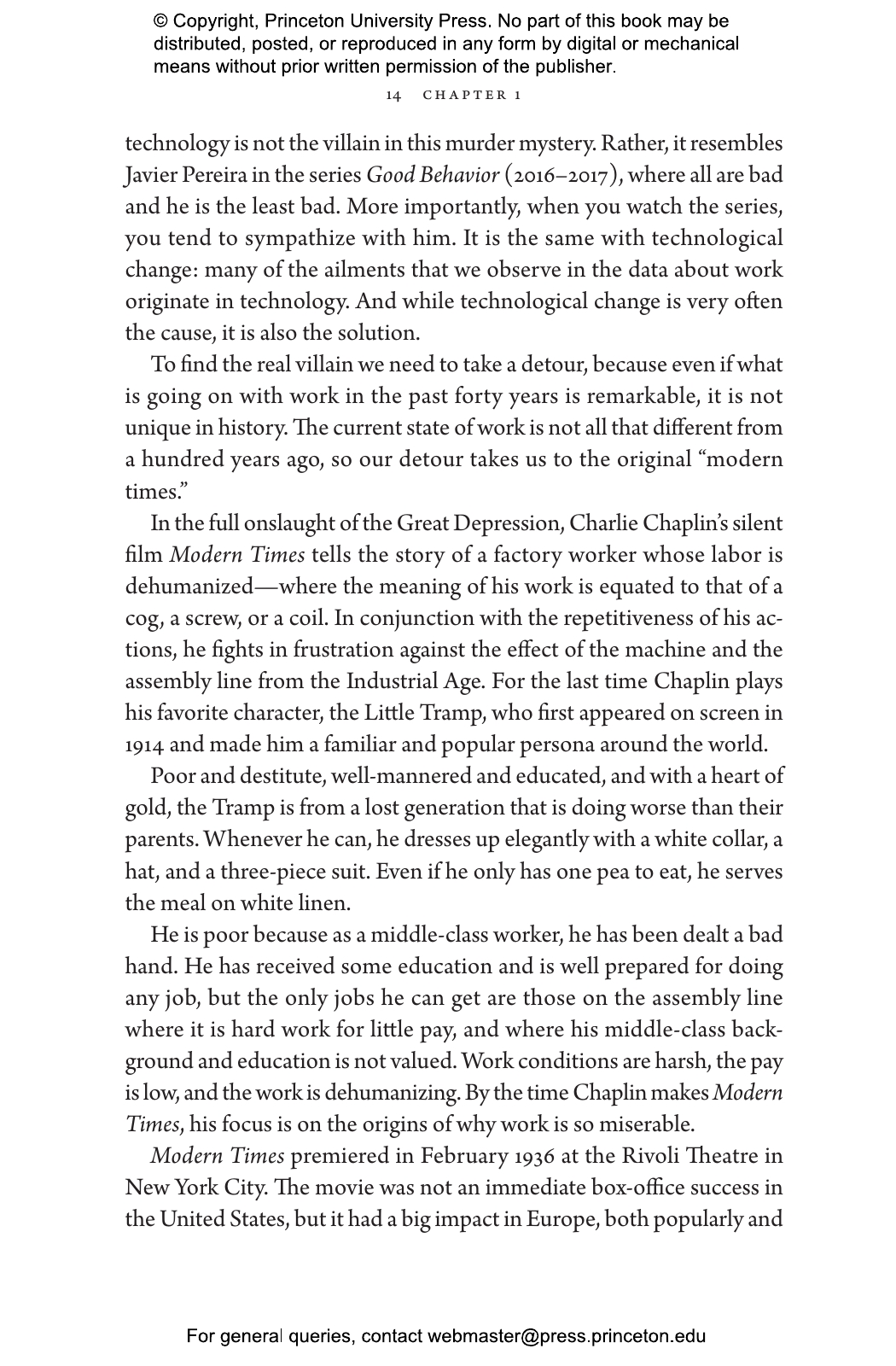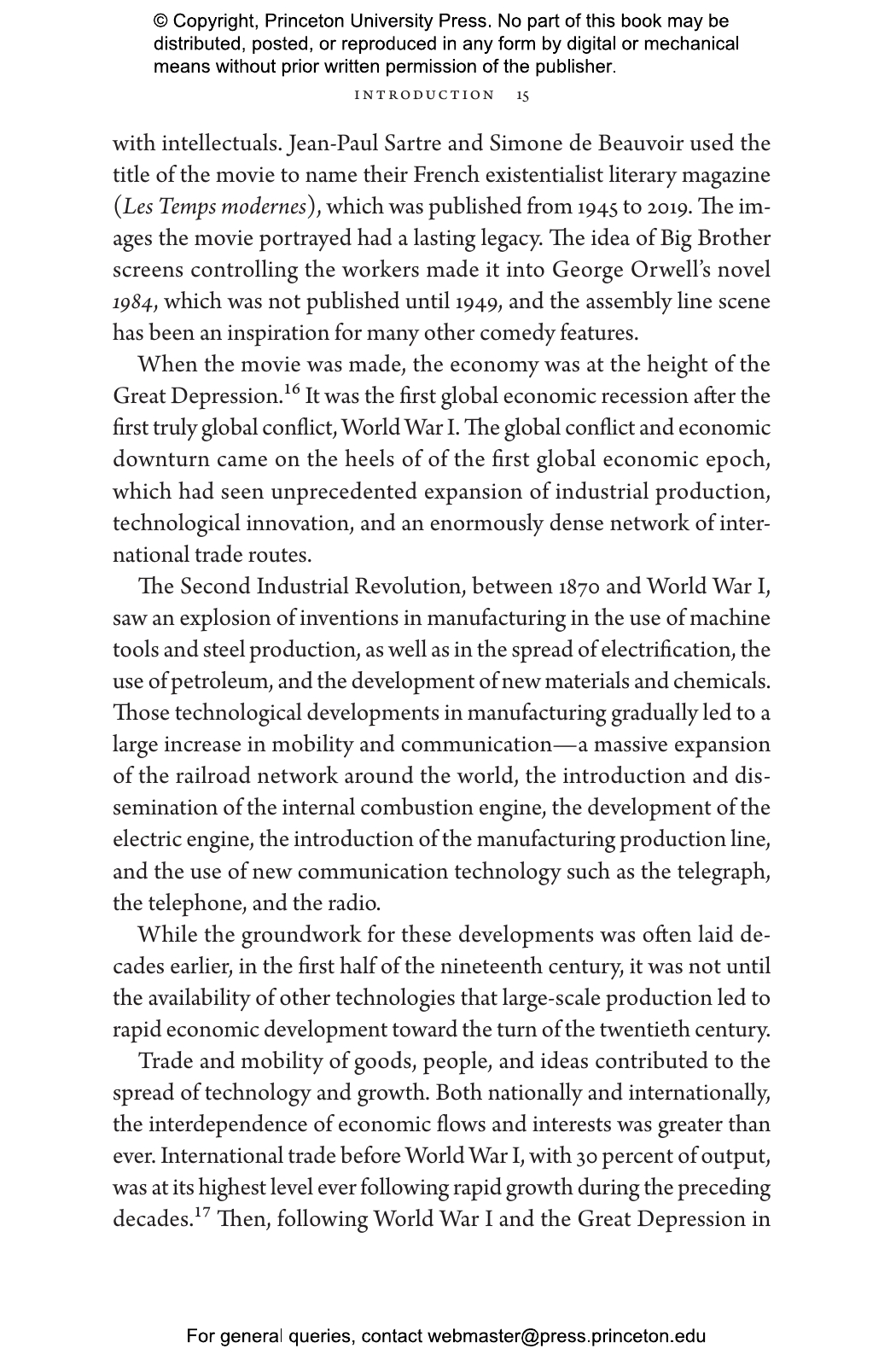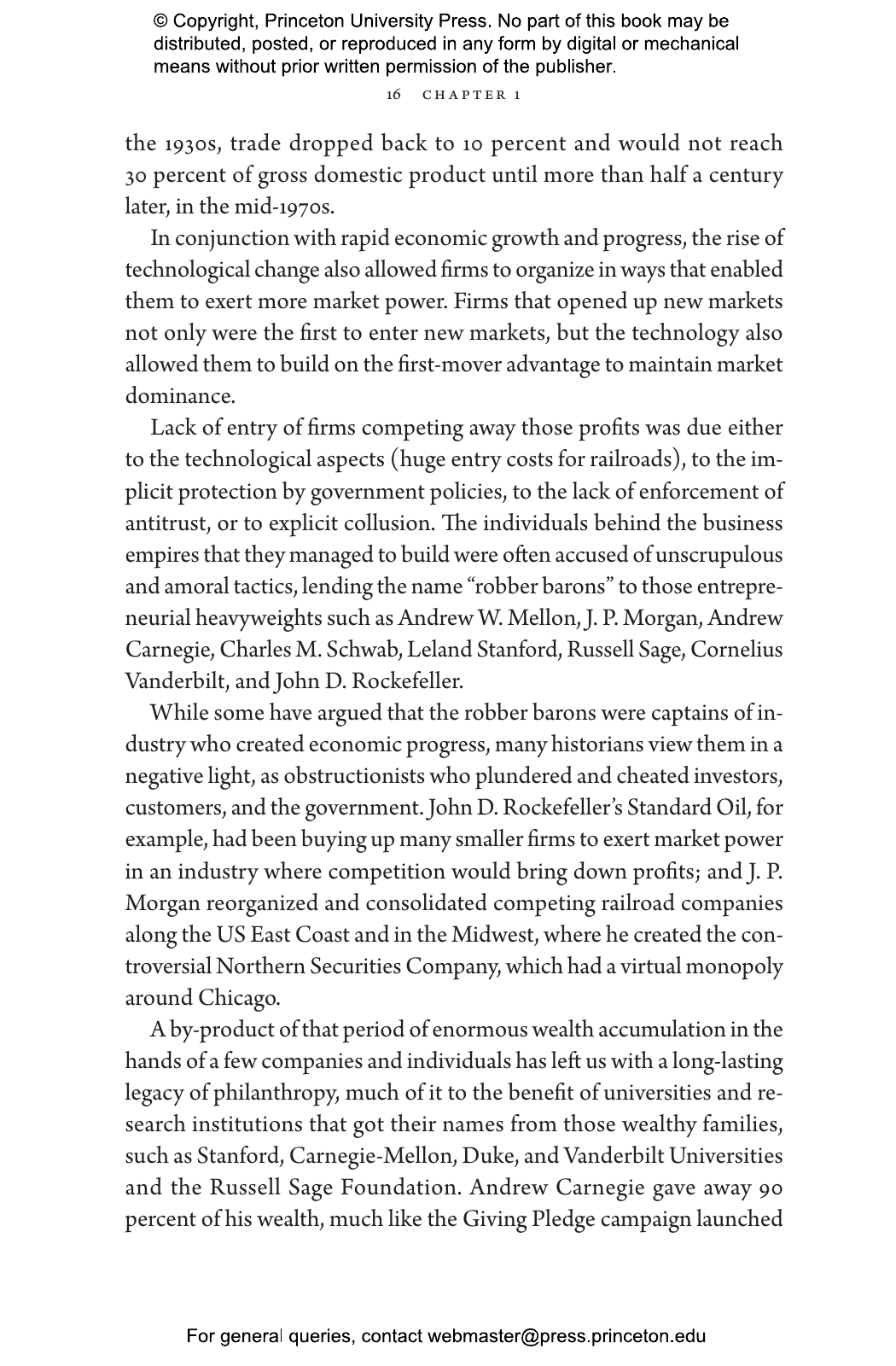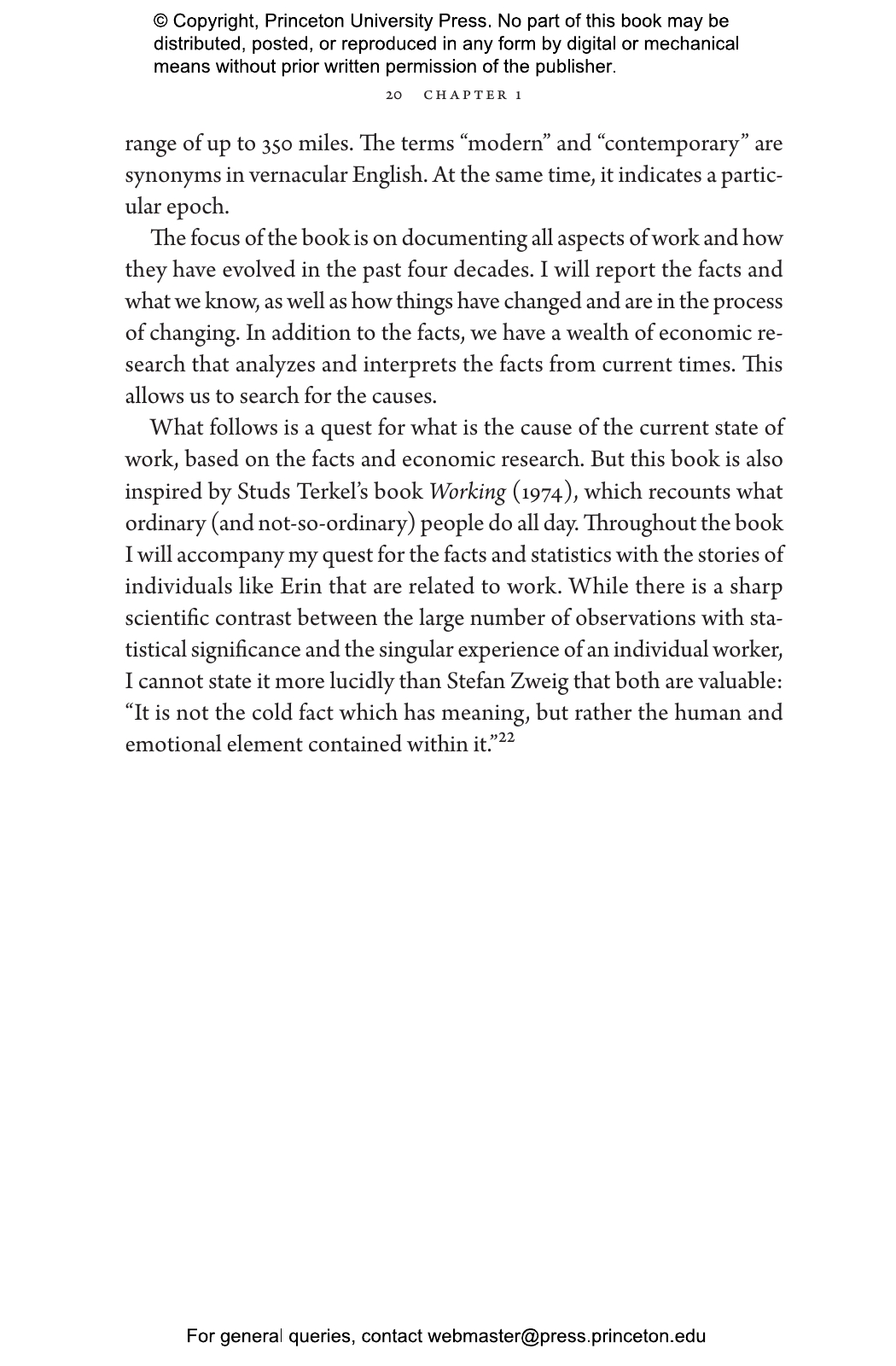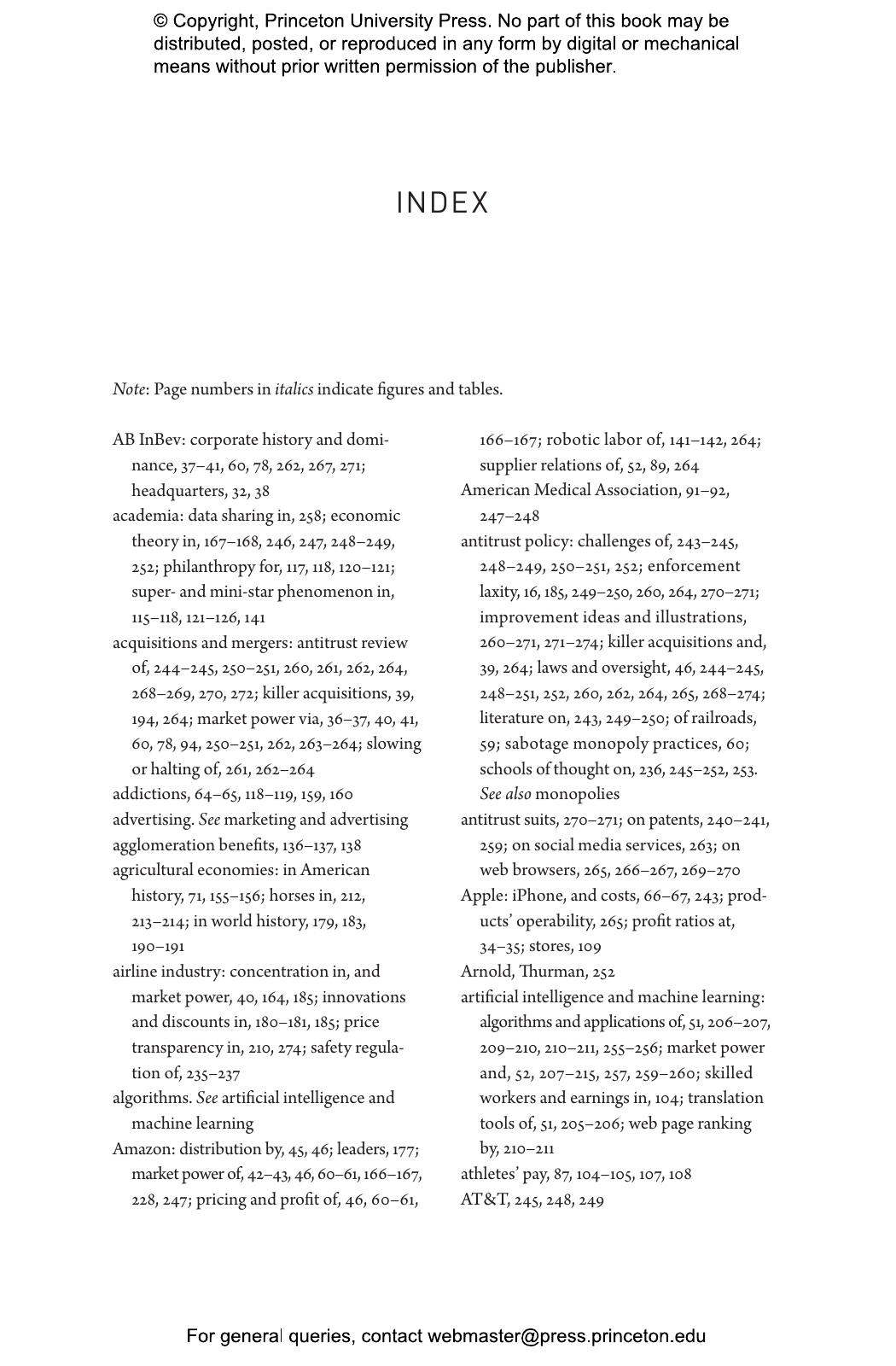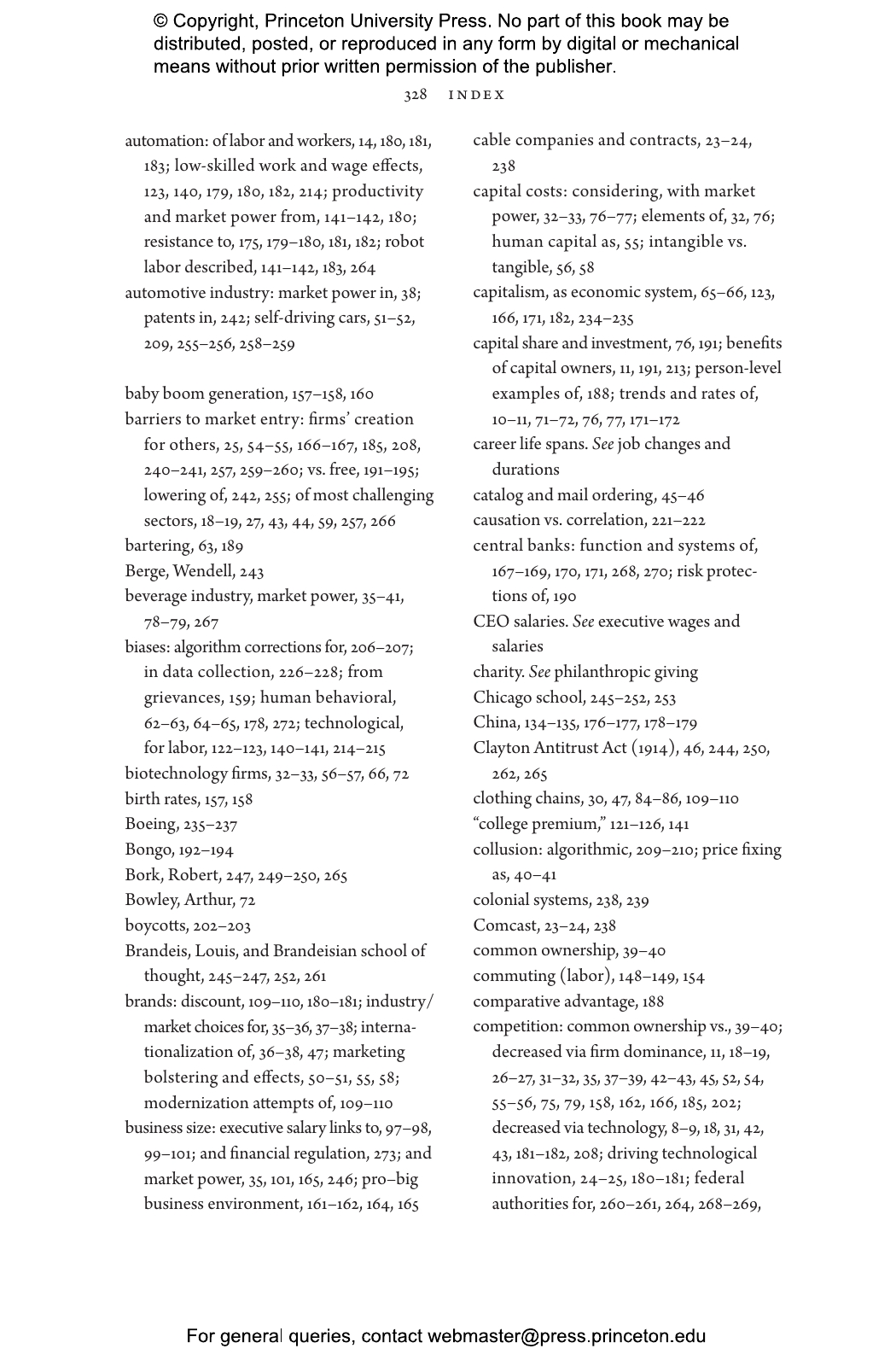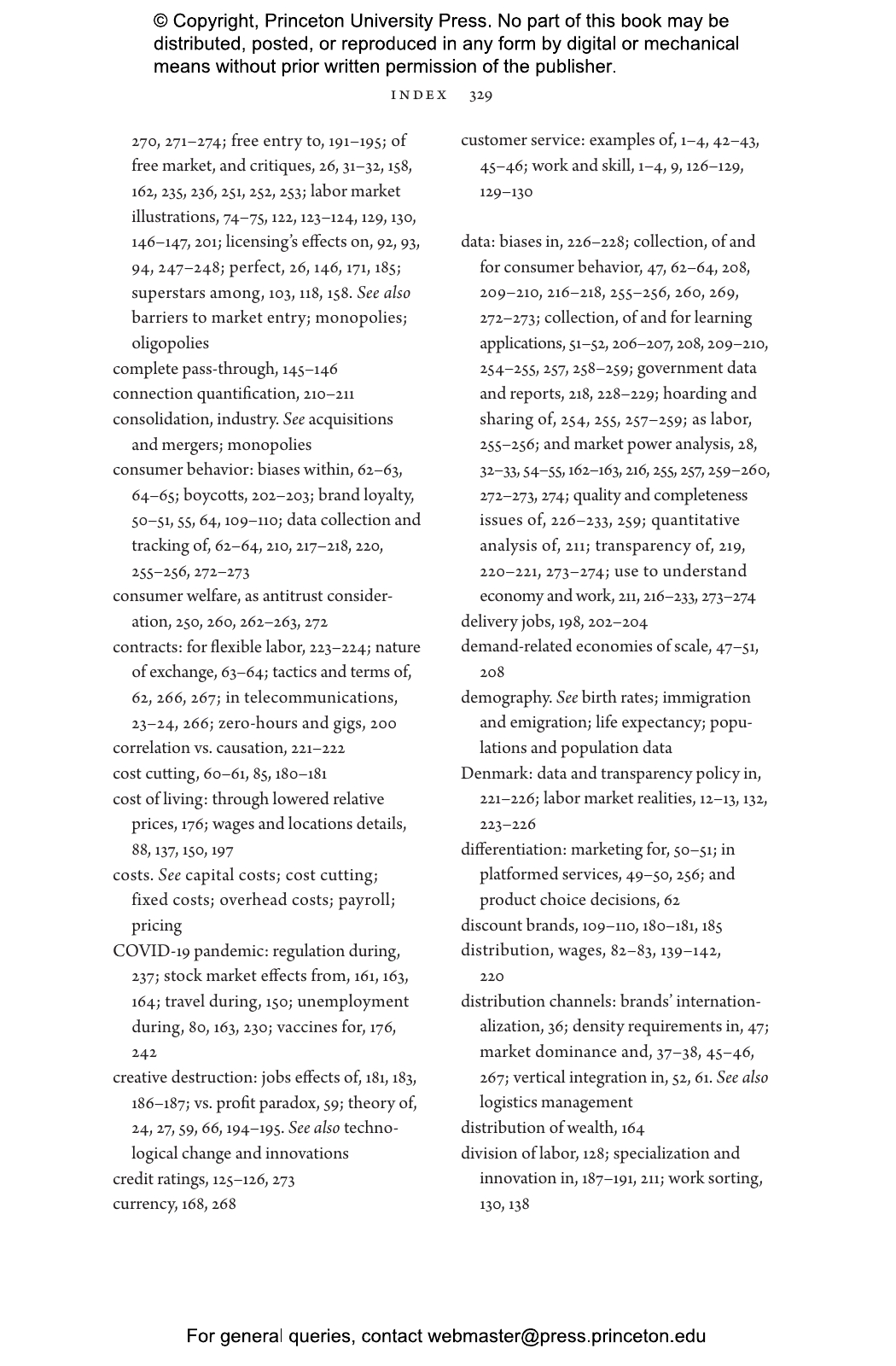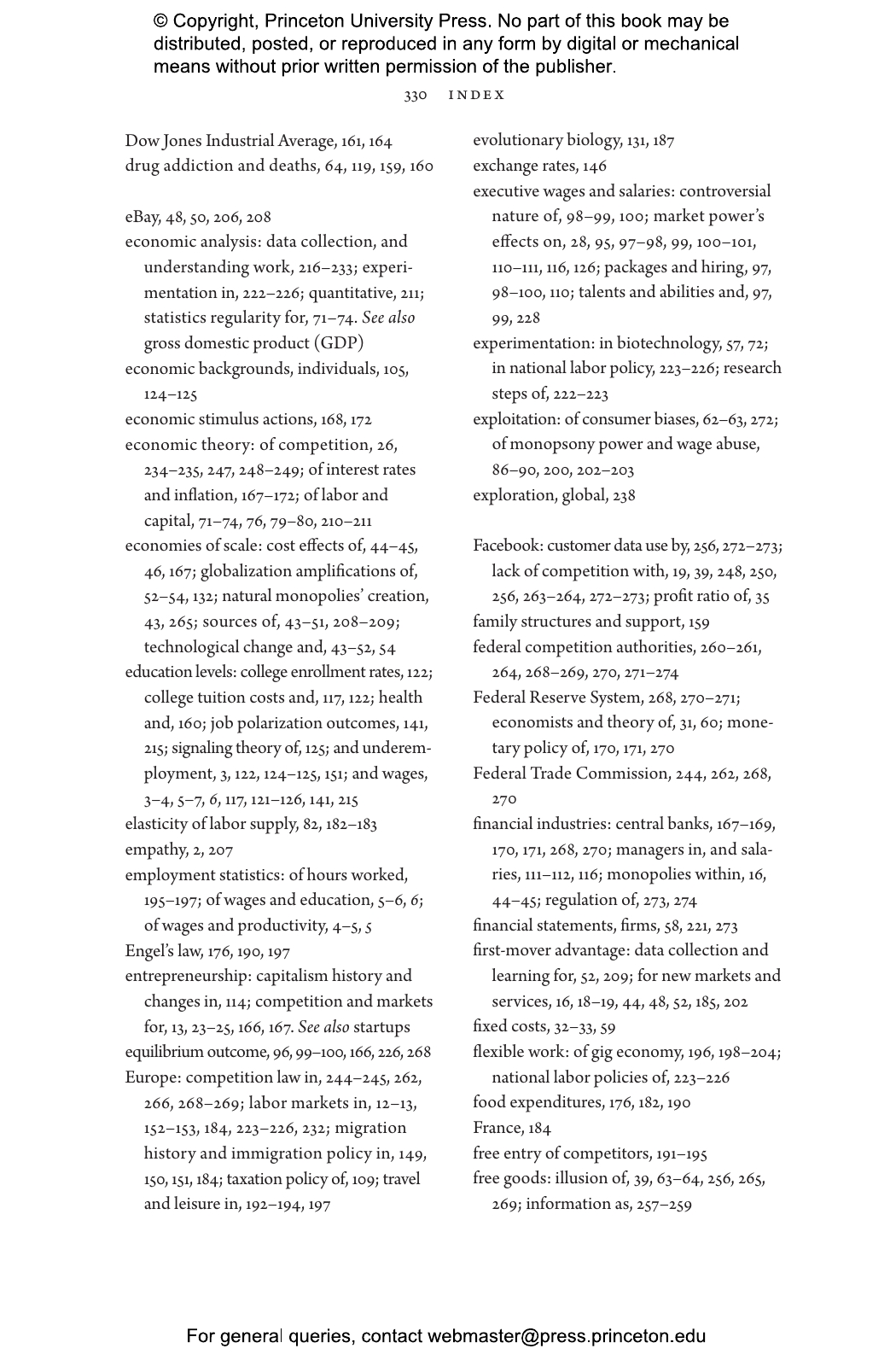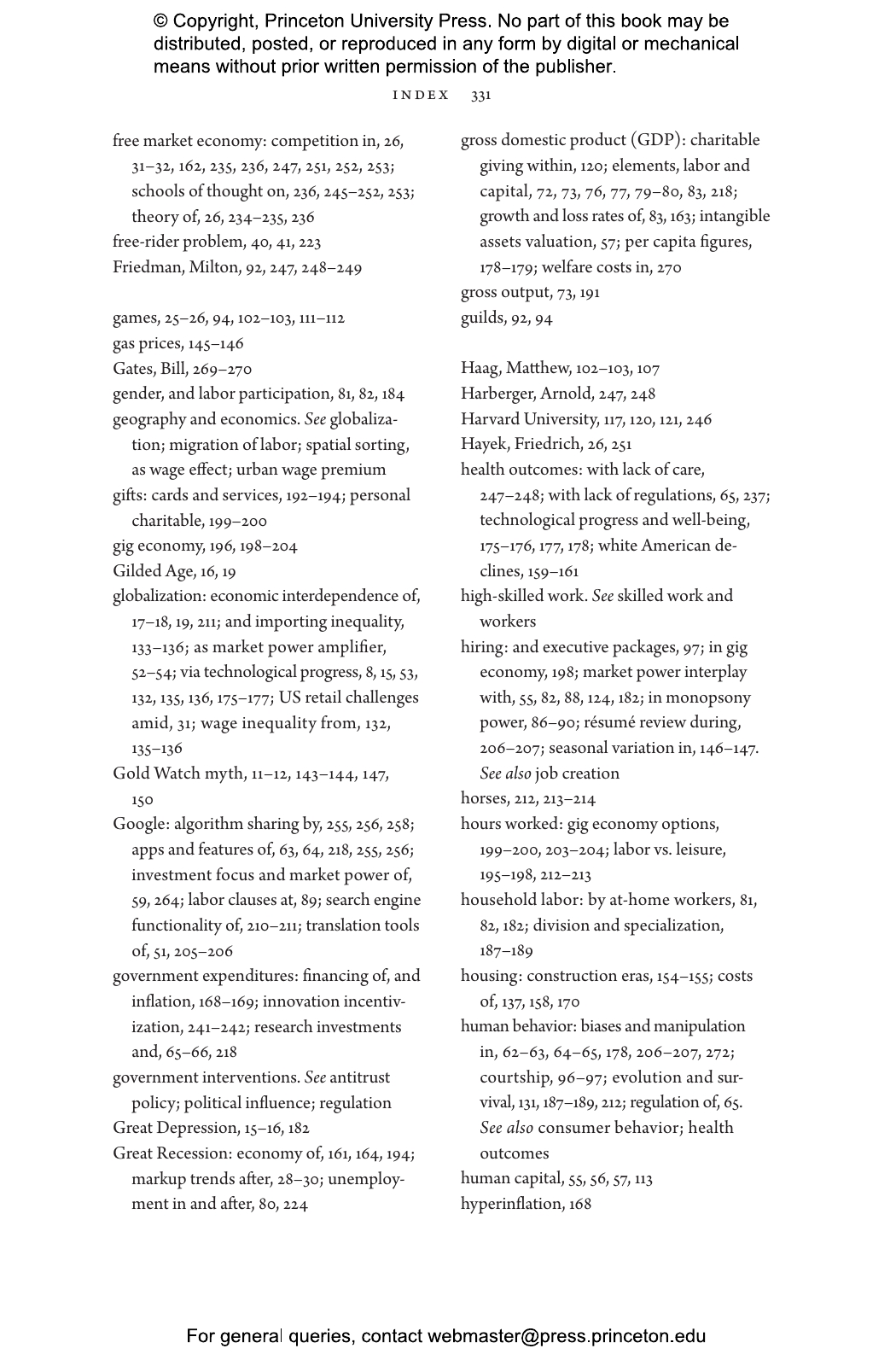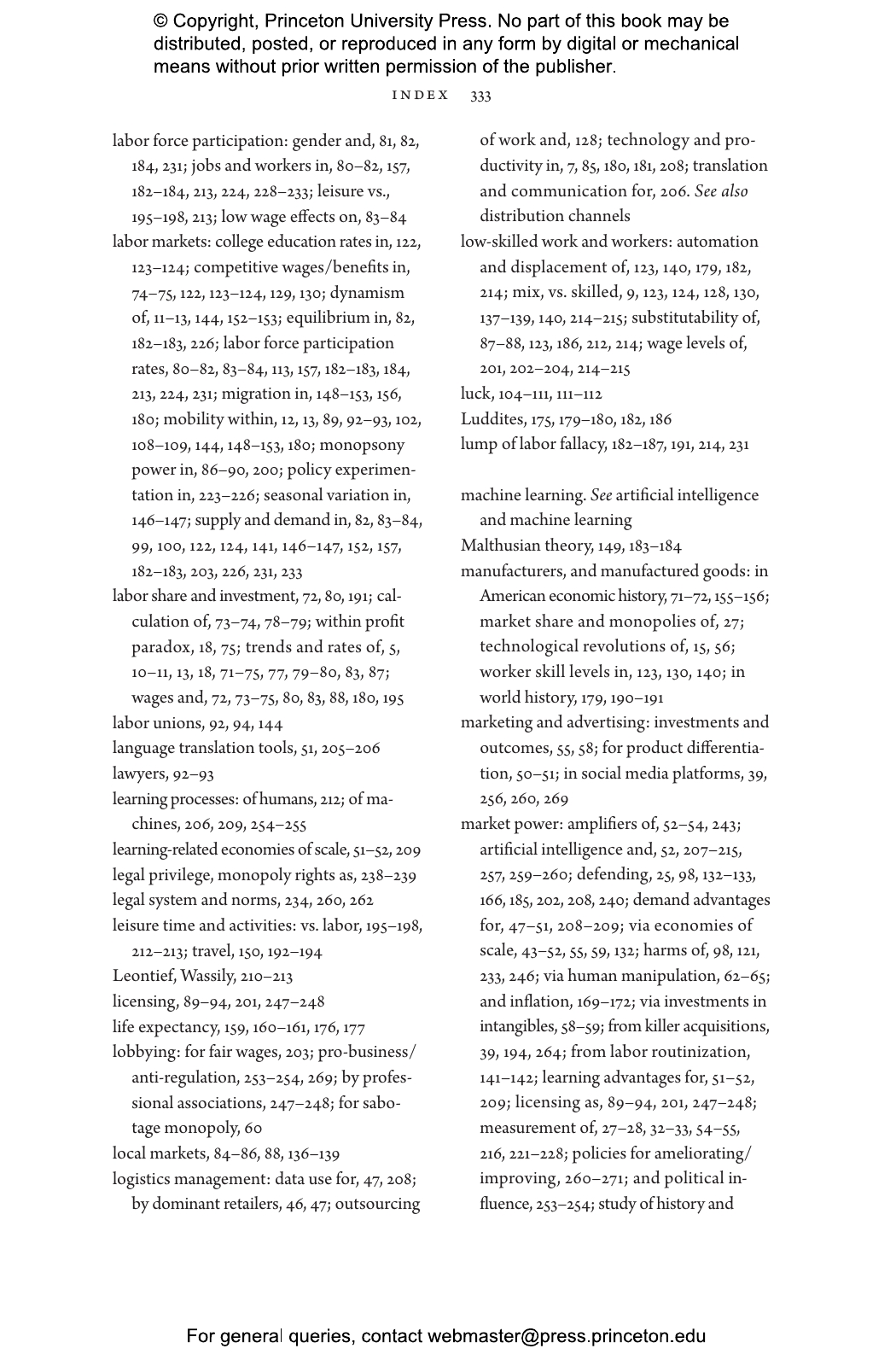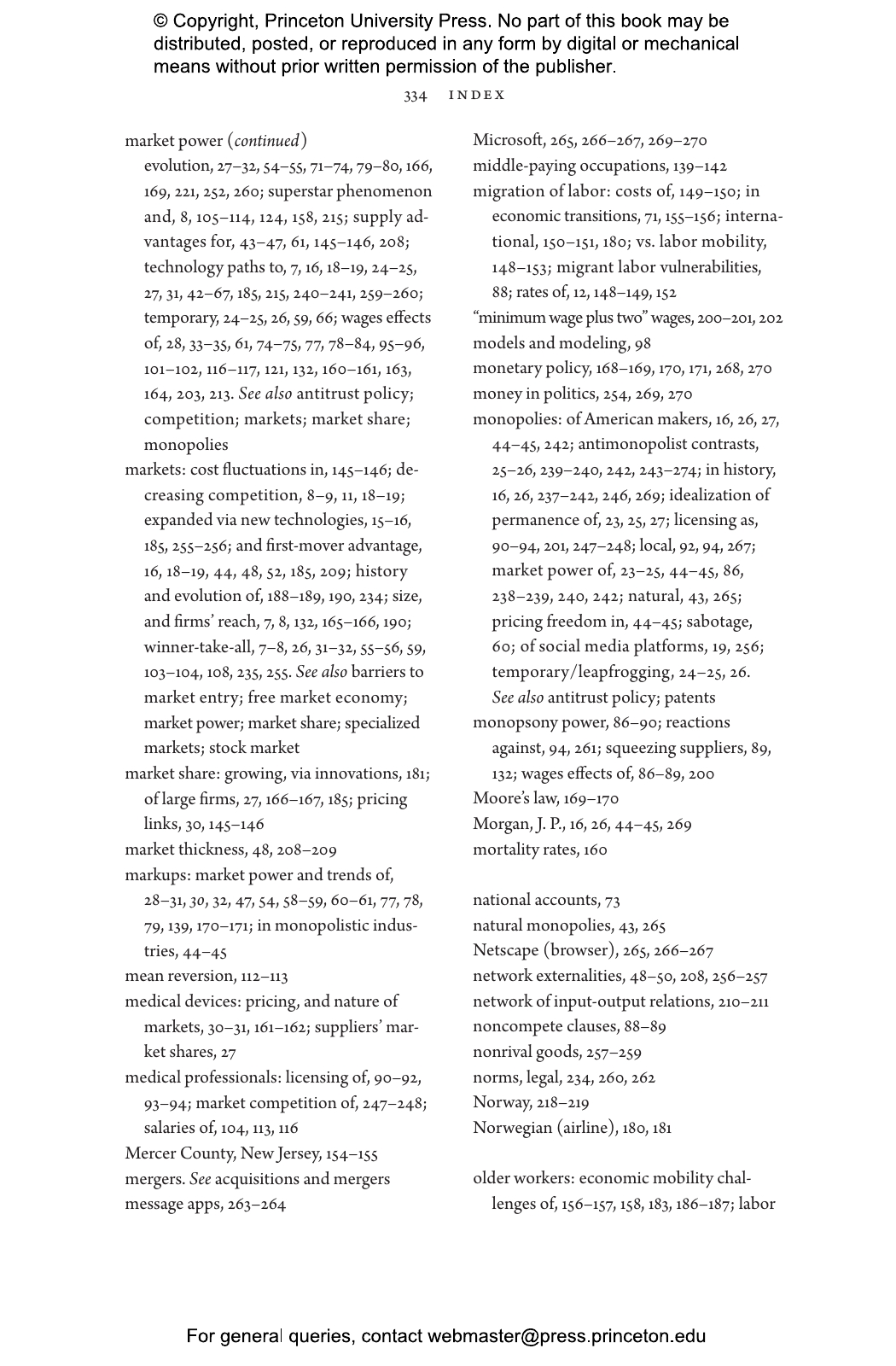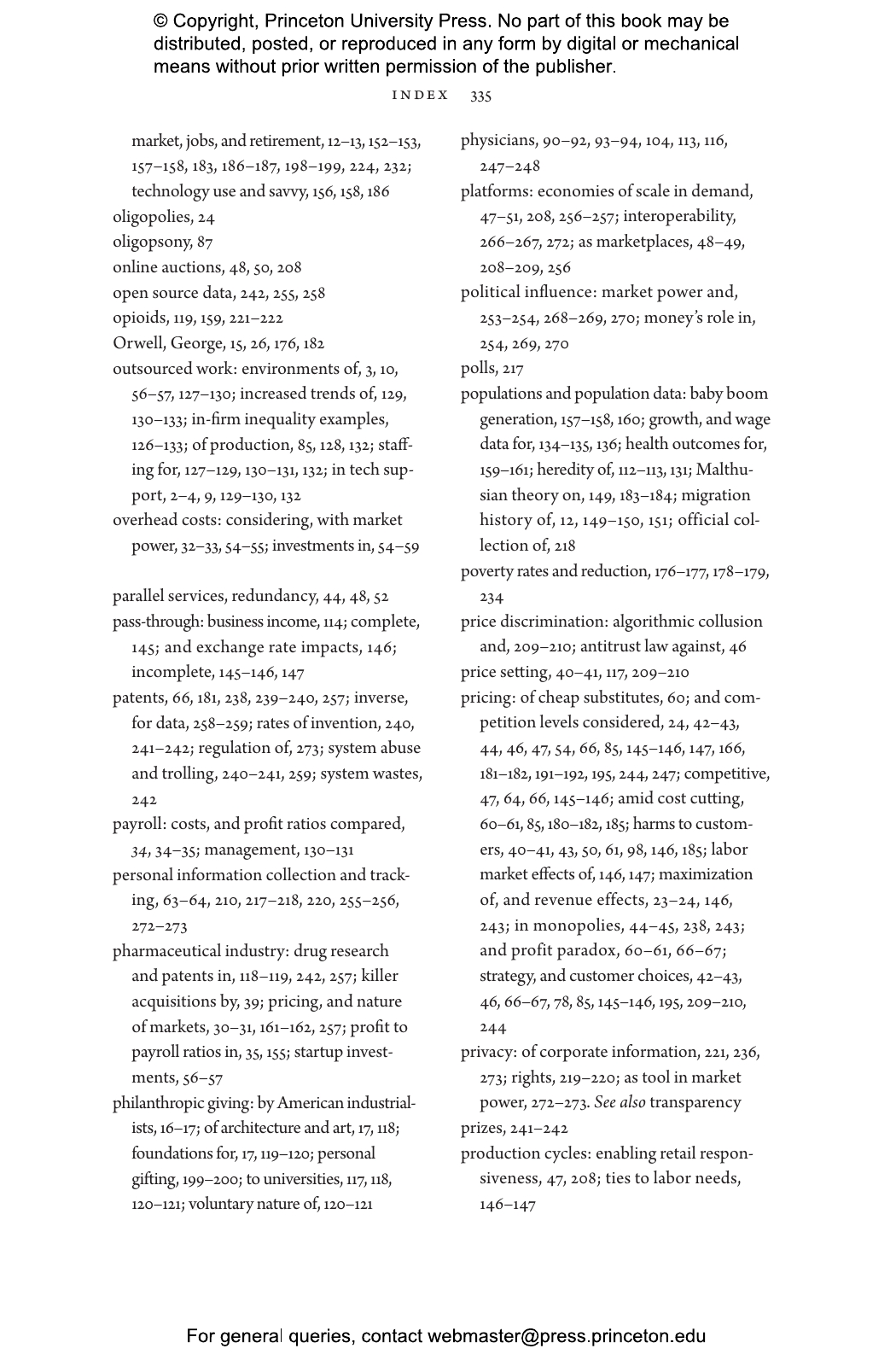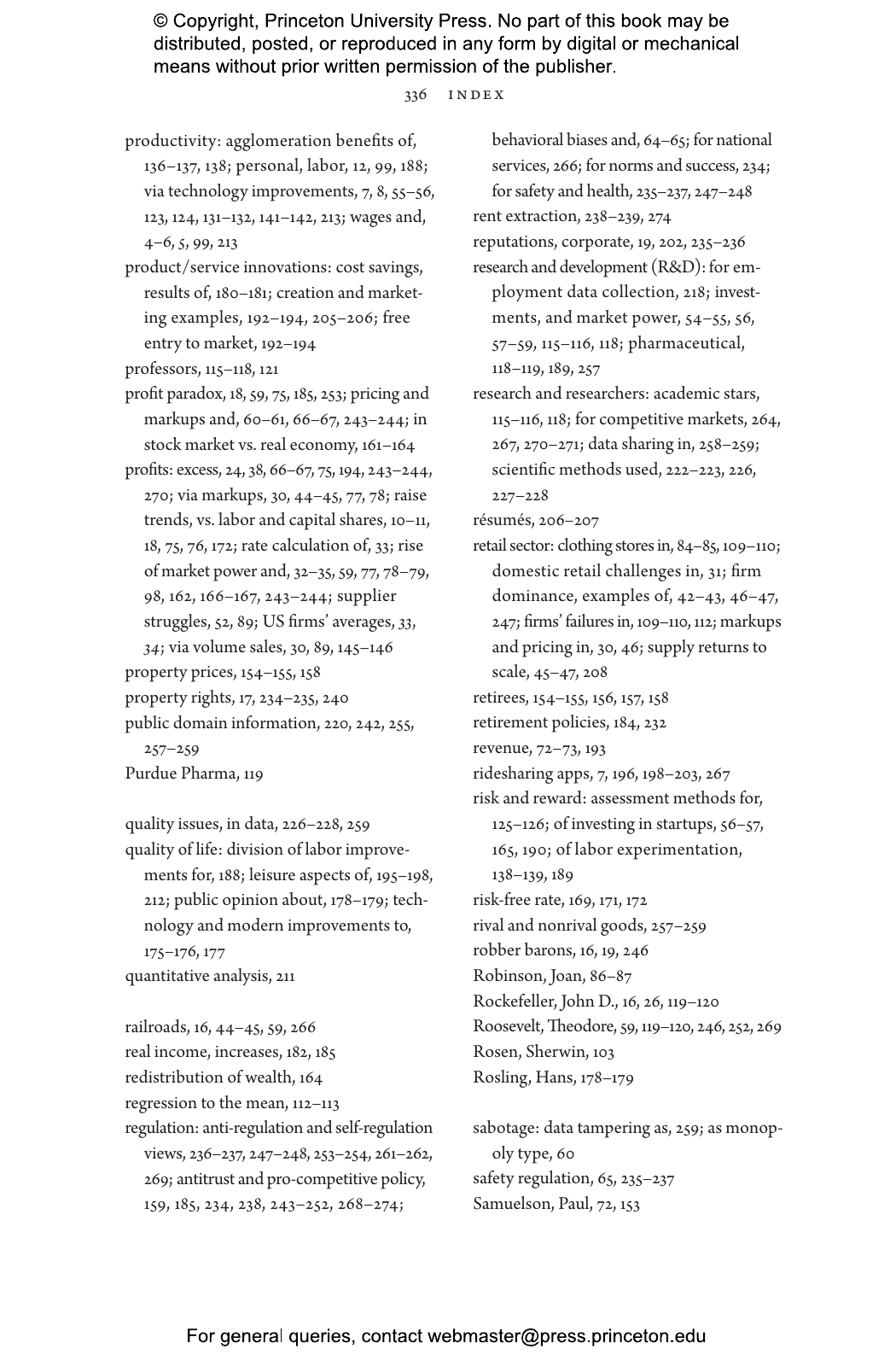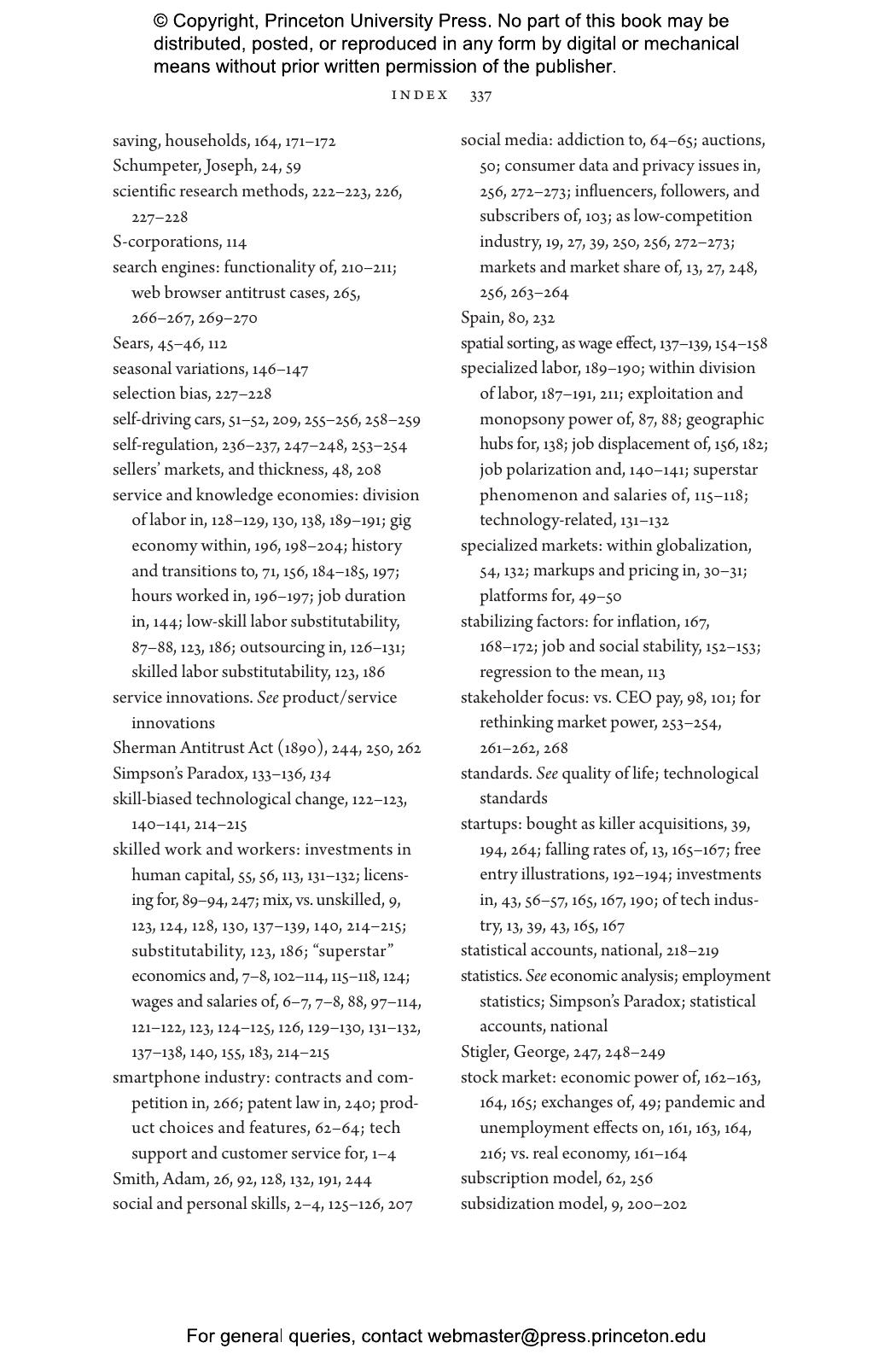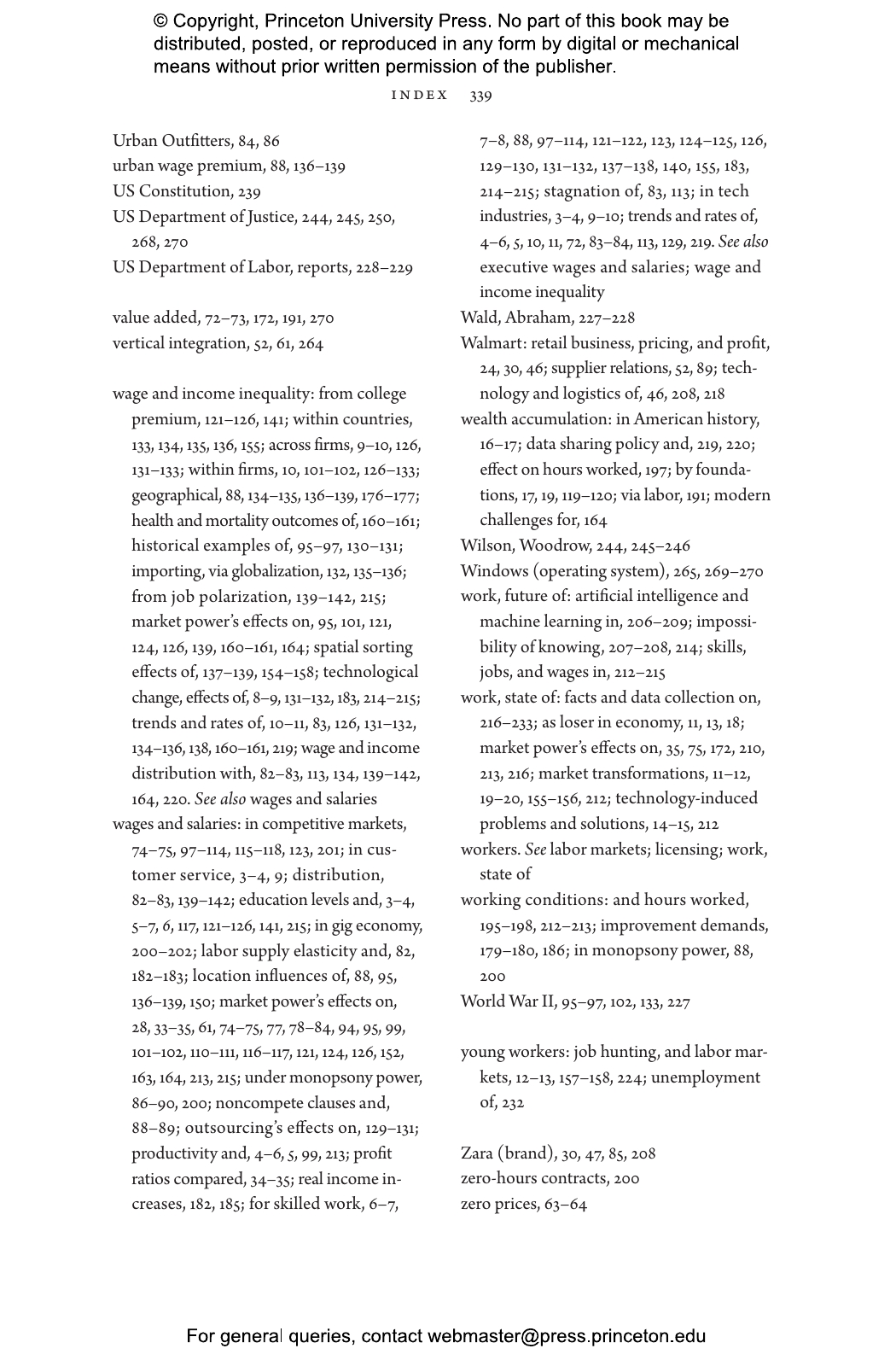In an era of technological progress and easy communication, it might seem reasonable to assume that the world’s working people have never had it so good. But wages are stagnant and prices are rising, so that everything from a bottle of beer to a prosthetic hip costs more. Economist Jan Eeckhout shows how this is due to a small number of companies exploiting an unbridled rise in market power—the ability to set prices higher than they could in a properly functioning competitive marketplace. Drawing on his own groundbreaking research and telling the stories of common workers throughout, he demonstrates how market power has suffocated the world of work, and how, without better mechanisms to ensure competition, it could lead to disastrous market corrections and political turmoil.
The Profit Paradox describes how, over the past forty years, a handful of companies have reaped most of the rewards of technological advancements—acquiring rivals, securing huge profits, and creating brutally unequal outcomes for workers. Instead of passing on the benefits of better technologies to consumers through lower prices, these “superstar” companies leverage new technologies to charge even higher prices. The consequences are already immense, from unnecessarily high prices for virtually everything, to fewer startups that can compete, to rising inequality and stagnating wages for most workers, to severely limited social mobility.
A provocative investigation into how market power hurts average working people, The Profit Paradox also offers concrete solutions for fixing the problem and restoring a healthy economy.
Awards and Recognition
- Winner of the Silver Medal in Business Commentary, Axiom Business Book Awards
- Winner of the William G. Bowen Book Award, Industrial Relations Section of Princeton University
"Eeckhout documents an astonishing rise of market power across all sorts of industries since 1980. We're not just talking about the usual suspects here; Amazon, Google, Facebook, and so on. We're talking about everything from the makers of cat food to the sellers of caskets."—Greg Rosalsky, NPR Planet Money
"A serious and significant effort to explain rising market power and its implications to decades of stagnant wages to a wider audience."—Simcha Barkai, ProMarket
"A very good read. . . . Hooray for an economist who can write so engagingly."—Diane Coyle, Enlightened Economist
"A sharply argued thesis that one effect of all-powerful corporations is the suppression of wages for working people across the board. . . . A provocative case, and one that those who feel undervalued in the present economy will surely appreciate."—Kirkus Reviews
"The book convincingly argues for some role of market power in workers’ woes. . . . At a time when antitrust frameworks are being reconsidered on both sides of the Atlantic, Eeckhout’s book is a powerful reminder that this rethink must go big."—Romain Duval, Finance and Development
"The Profit Paradox is an easy read . . . and the tour d’horizon of issues is impressive."—Jane Fuller, Financial World
"As economist Jan Eeckhout lays out in his new book The Profit Paradox, rapid technological change since the 1980s has improved business efficiency and dramatically increased corporate profitability. But it has also led to an increase in market power that is detrimental for people in work."—Financial Times
"The work combines an in-depth economic vision with examples from everyday life."—Eurakalert
"The book is important for several reasons. First. . . . this book takes a global view. Second, it pushes back against quite a widespread misconception that monopoly is largely an American problem and that Europeans in particular are protected by strong competition authorities. Third, it is one of those relatively rare books that combines an easy read with deep and rich scholarship from an expert in the field."—Nicholas Shaxson, The Counterbalance
"[The Profit Paradox] successfully carries out the Herculean task of bridging the frontier of academic knowledge with the general public. . . .Not only does [Eeckhout] present novel results in economics in a friendly way without departing from academic rigour, but he also provides an agenda for policies to be implemented. Written in an engaging voice and full of concrete examples from everyday life, this book will certainly find a place in the bookshelves of economists, policymakers, and even the general public."—Joaquín Paseyro Mayol and Edoardo Peruzzi, Economics and Philosophy
“A vivid, comprehensive account of the causes and consequences of the recent rise of market power written by a world-renowned expert in the field, The Profit Paradox combines deep economic insight with examples from everyday life that will captivate nonspecialist audiences as much as economists.”—Pinelopi Goldberg, Yale University, former chief economist of the World Bank Group
"Provocative, ambitious, and pitch-perfect for this moment. Eeckhout shows how the rise of mega-profitable superstar corporations makes us all poorer.”—David Autor, Massachusetts Institute of Technology
“Eeckhout has done groundbreaking work on the rise in prices in the economy and the dynamics of the labor market. This book is a significant contribution to the field.”—Gabriel Zucman, coauthor of The Triumph of Injustice: How the Rich Dodge Taxes and How to Make Them Pay
“The Profit Paradox is a timely and valuable addition to the national conversation on monopolies and competition. Jan Eeckhout does a masterful job of linking long-running macroeconomic trends to the lives of individual workers and consumers. Economists have only recently understood how market power affects both. He explains how the drive for corporate profit, in combination with insufficient enforcement to prevent market power, lowers wages and working conditions and reduces opportunities for small business. The book is one of the first clear and engaging explanations of how many of the most problematic features of the modern economy are causally related.”—Fiona Scott Morton, Yale University School of Management


